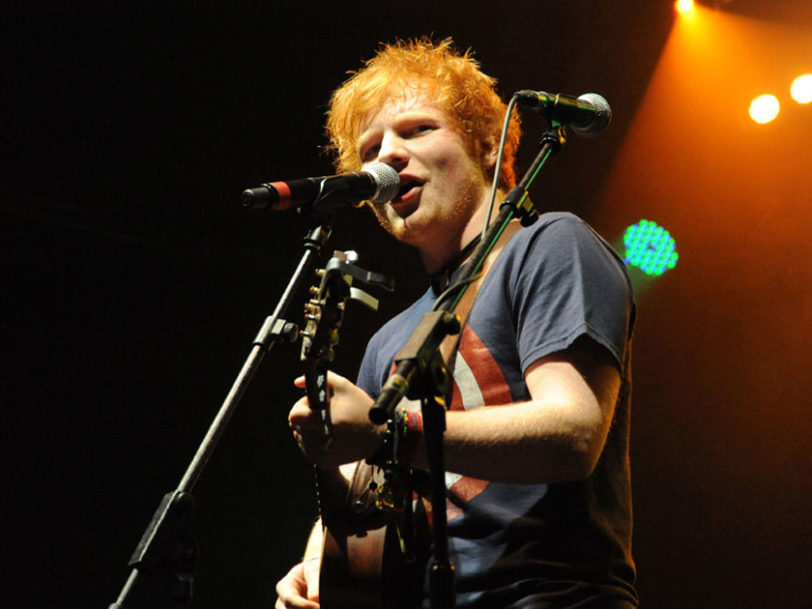The video rapidly went viral, racking up 20,000 views in three weeks and introducing Sheeran to a whole new audience. The crossover appeal of Sheeran’s brand of pop-rap needn’t have come as a surprise, particularly as he was inspired by British hip-hop artists such as the “Godfather Of Grime”, Wiley. “As soon as I did the SB.TV video, they all started contacting me,” Sheeran said. For a song that asserted its creator’s right to do things his own way, You Need Me, I Don’t Need You was making waves.
“If I’m having a tough show, I do that song and it turns things around”
Shortly after his breakout SB.TV performance, UK rapper Example invited Ed Sheeran to join him on tour as his support act, further exposing Sheeran to new crowds. Realising he was on the cusp of something big, the songwriter bought himself a one-way ticket to Los Angeles in order to see how his material would fare across the pond. It was a gamble, but it paid off. After an acclaimed set at The Savoy, Sheeran was invited to play at an open-mic club called The Foxxhole, a venue owned by Hollywood actor Jamie Foxx. Playing in front of a predominantly Black crowd, the ginger white kid with a loop pedal raised a few eyebrows, but launching into You Need Me, I Don’t Need You immediately won them over.
As it happens, Jamie Foxx was in the crowd at the time and spoke to Sheeran after the gig. “You’re incredible,” Foxx told him, before inviting him back to stay at his Hollywood mansion. Today, Sheeran reflects upon this time with a mix of pride and incredulity: “Within a month of going there with zero confidence, being able to fly to LA with nothing and ending up in one of the biggest movie stars in the world’s house, in my mind I was like, ‘I must have something.’”
By proving his mettle against seasoned LA rappers, street poets and R&B singers, Sheeran returned to the UK and found himself working with British MCs he admired, among them Wiley, JME, Devlin and Ghetts, on his next EP, No.5 Collaborations Project. Nevertheless, Sheeran considers You Need Me, I Don’t Need You to be the song that gave rise to these opportunities. “You Need Me is kinda my calling card,” he has said. “It has never failed, anywhere. If I’m having a tough show, I do that song and it turns things around.”




